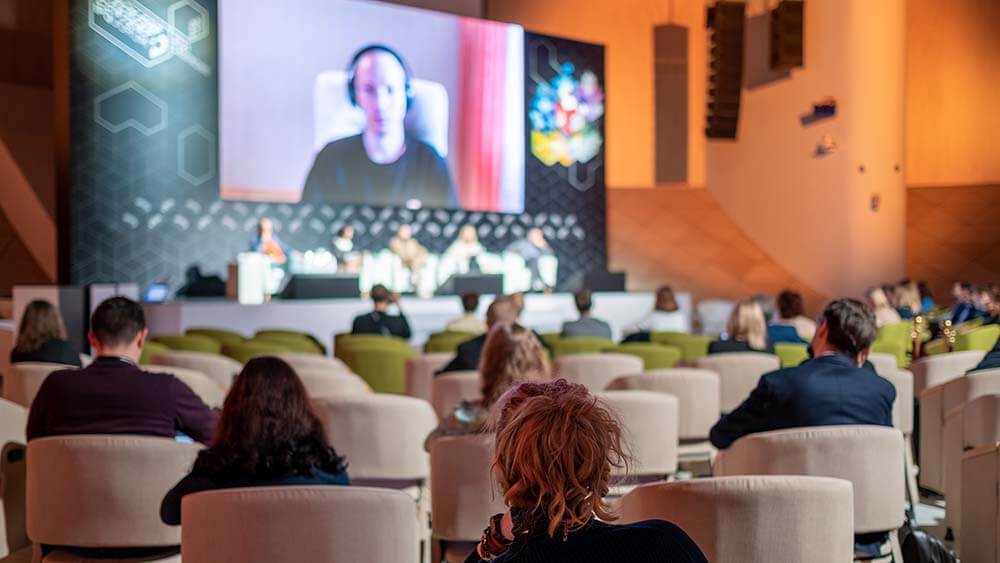
Among the 354 planners responding to the September Dashboard survey, 19 percent said they are moving forward with a planned hybrid event.
If the results of our latest COVID-19 Recovery Dashboard Survey tell one story, it’s this: We’re much less anxious about the future than we were just a month ago. When asked to describe how they were feeling, 29 percent of planners and 26 percent of suppliers said they were anxious during the week this dashboard was conducted, Sept. 21-27. When responding to our survey a month earlier, Aug.12-17, 47 percent of planners and 42 percent of suppliers had reported feeling anxious.
At the other end of the spectrum, positive feelings among the 354 planners and 115 suppliers who responded to the September dashboard went up a bit, but not to the same extent as that drop in anxiety: One-third of planners said they were hopeful compared to 27 percent in August; for suppliers, it was 34 percent in September vs. 31 percent in August. Sixteen percent of suppliers (vs. 5 percent in August) also said they were feeling inspired and creative.
But the other emotions respondents checked off indicate that the COVID whiplash they were experiencing in August — when the Delta variant caused COVID cases to spike, dashing earlier hopes for a smooth recovery of face-to-face business events — has coalesced into more of a sense of resolve. A slightly higher percentage of respondents reported feeling determined and a larger percentage of planners said they were doing their best to get by (insert gritted-teeth emoji) compared to the August results.
We can see this collective grit in another part of the survey: More planners and suppliers said in September that they think it’s necessary to develop soft skills — including cultivating resilience in times of crisis — to succeed professionally during the recovery. One planner cited “remaining resilient” as her biggest achievement in the last six months.
The emotional toll more than 18 months of dealing with the pandemic has taken on events industry professionals can’t be understated. In the open-ended comments, many expressed feeling angry, frustrated, defeated, disappointed, and exhausted — and there was, in fact, an uptick in the percentage of planners and suppliers who reported feeling exhausted and burned out in September compared to August: more than one-third of planners (vs. 31 percent) and more than a quarter of suppliers (vs. 21 percent).
The percentage of planners in September vs. August who said they were canceling their in-person event for digital only in the coming months in response to the Delta variant more than doubled — 23 percent compared to 11 percent. At the same time, more said they are moving forward with a hybrid event: 19 percent vs. 14 percent. When asked a different way, only three in 10 planners said they are planning an in-person-only event for the remainder of this year, compared to more than two out of five who said the same in August. Nearly half are planning a digital-only event (around the same as last survey) and only 35 percent is planning a hybrid event for Q4 2021 compared to the 49 percent of planners who were doing so in August.
The percentage of those who are taking a wait-and-see approach and closely monitoring the COVID situation was cut by half: Only 21 percent said they are biding their time, compared to 41 percent in August.
Taken together, the open-ended comments may be summed up this way: “Enough already.” Which could help explain another big jump between the two surveys, just one month apart. While we continue to hash out what it takes to safely bring people together in person for events, the latest survey responses point to one approach gaining ground to minimize the risk of exposure to COVID: mandating vaccination.
Forty percent of planners and 43 percent of suppliers — vs. 28 percent and 25 percent, respectively, in August — said they will require attendees, staff, and visitors to show proof of vaccination to participate in their face-to-face or hybrid event. When asked why they wouldn’t enforce a vaccine mandate, some expressed concern that it would be divisive or send a political message. But this planner has looked beyond the potential objections of individual audiences and had this to say about whether such a requirement should be enforced: “100% ABSOLUTELY! This has to become a standard! We are a global industry and we can impact the world in the most positive ways.”
The writer of an article I recently read suggested that we stop referring to “waves” of COVID, since the metaphor is tied to the ceaseless and relentless movement of the ocean. Instead, the writer said, we should consider our experience akin to a roller-coaster ride — there are highs and lows, for sure. But eventually, the ride ends and we get off. It’s healthier for our psyche to think in terms of an end to this pandemic.
While the world waits for that full stop, planners are setting their sights on more of a return to business as usual in first and second quarters of 2022, when nearly half are planning a hybrid event. Another half are planning an in-person-only event, like this respondent, who wrote: “We are crossing our fingers and jumping in with two feet.” We’re all hoping for a safe landing.
Michelle Russell is editor in chief of Convene.
Please download a PDF of the full September Recovery Dashboard results by clicking the link below.
Previous Recovery Dashboard Results
Find all the past results on our Recovery Dashboard archive page.
